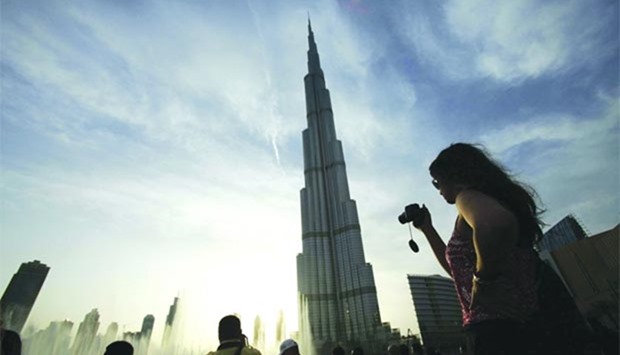The value added tax (VAT) regime, scheduled to be in place in the Gulf Cooperation Council (GCC) by next year, is expected to provide “relief” to non-GCC tourists travelling into the region, a top official of an accounting firm has said.
"We can expect the GCC countries to provide relief on VAT payment to (non-GCC) tourists who shop in one of the GCC countries," said Raju Menon, chairman and managing director of the UAE-based Morrison Menon Group.
Dubai has lots of visitors coming in from non-GCC countries for shopping and leisure and they would end up paying applicable VAT on purchase of goods, he said in the accounting firm’s latest newsletter.
In this regard, he highlighted that as a visitor to the European Union, who is returning home or going to non-European Union country, one may be eligible to buy goods free of VAT in special shops.
GCC VAT, which is expected to be 5%, is being planned for the rollout from 2018. The region is expected to reap revenues in excess of $25bn annually in the new regime. According to the International Monetary Fund, VAT could generate as much as 1.5% to 2% of gross domestic product (or about 2.5% to 3.5% of non-oil GDP) in revenue in the GCC even with relatively low rates.
Highlighting that the impact of VAT on tourists spending in the GCC would depend upon the ease of refund, Menon said VAT-free shopping involves lot of documentation and it can be taxing for a tourist to claim refund on VAT paid. "As a visitor to GCC country, it may not be a simple process to do VAT-free shopping," he said.
Qatar, which will host the 2022 FIFA World Cup, is expected to see 7mn to 9mn tourists annually by 2030. The country has developed its national tourism strategy 2030, an ambitious roadmap for the sector, which is poised to contribute 5.1% to GDP by 2030.
On the administrative aspects of VAT, Menon said, it is too early to predict the structure that would be rolled out by the GCC, whose travel and tourism sector is expected to be among the industry leaders in economic growth over the next decade.
"We are still not sure about the VAT rates that would be implemented. However, we can be certain of zero VAT rate for certain essential goods and services," he said, noting that in the UK, there are standard, reduced and zero rates.
He said the business establishments in the GCC would need to have team in place that is well trained on the intricacies of applicable VAT rate, zero VAT and exemptions of VAT for product and services, documentation, invoicing and regulatory filings.
"The existing accounting packages would require modification to take VAT into account. For companies with adequate training, processes and automation in place, we will not expect compliance to VAT be a challenge," he said.
Low taxation and the ‘new normal’ of the oil, which has been depressed since 2014, have forced the GCC to find new revenue streams as VAT, Dr Nasser Saidi, a former chief economist of Dubai International Financial Center, had earlier said.
Dubai has lots of visitors coming in from non-GCC countries for shopping and leisure and they would end up paying applicable VAT on purchase of goods, he said in the accounting firm’s latest newsletter.
In this regard, he highlighted that as a visitor to the European Union, who is returning home or going to non-European Union country, one may be eligible to buy goods free of VAT in special shops.
GCC VAT, which is expected to be 5%, is being planned for the rollout from 2018. The region is expected to reap revenues in excess of $25bn annually in the new regime. According to the International Monetary Fund, VAT could generate as much as 1.5% to 2% of gross domestic product (or about 2.5% to 3.5% of non-oil GDP) in revenue in the GCC even with relatively low rates.
Highlighting that the impact of VAT on tourists spending in the GCC would depend upon the ease of refund, Menon said VAT-free shopping involves lot of documentation and it can be taxing for a tourist to claim refund on VAT paid. "As a visitor to GCC country, it may not be a simple process to do VAT-free shopping," he said.
Qatar, which will host the 2022 FIFA World Cup, is expected to see 7mn to 9mn tourists annually by 2030. The country has developed its national tourism strategy 2030, an ambitious roadmap for the sector, which is poised to contribute 5.1% to GDP by 2030.
On the administrative aspects of VAT, Menon said, it is too early to predict the structure that would be rolled out by the GCC, whose travel and tourism sector is expected to be among the industry leaders in economic growth over the next decade.
"We are still not sure about the VAT rates that would be implemented. However, we can be certain of zero VAT rate for certain essential goods and services," he said, noting that in the UK, there are standard, reduced and zero rates.
He said the business establishments in the GCC would need to have team in place that is well trained on the intricacies of applicable VAT rate, zero VAT and exemptions of VAT for product and services, documentation, invoicing and regulatory filings.
"The existing accounting packages would require modification to take VAT into account. For companies with adequate training, processes and automation in place, we will not expect compliance to VAT be a challenge," he said.
Low taxation and the ‘new normal’ of the oil, which has been depressed since 2014, have forced the GCC to find new revenue streams as VAT, Dr Nasser Saidi, a former chief economist of Dubai International Financial Center, had earlier said.


